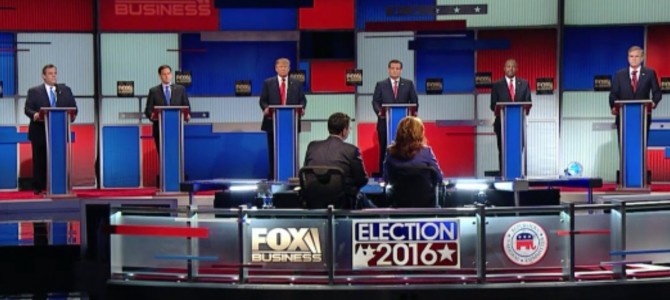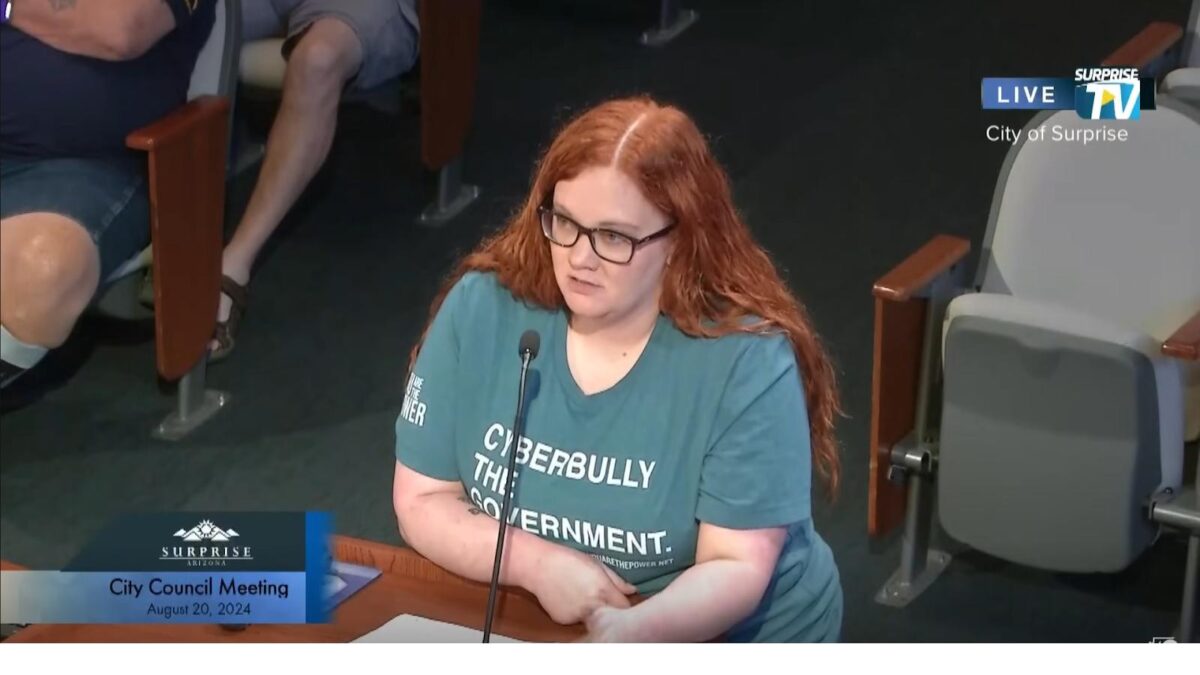
James Madison once sounded a warning about how liberty might one day be stolen away from the American people: “I believe there are more instances of the abridgment of the freedom of the people by gradual and silent encroachments of those in power than by violent and sudden usurpations.”
Madison was right. Today, Democrats have made a habit of attempting “gradual and silent encroachments” on free speech. The most recent example came just last week when it was revealed that Democrats on the Federal Election Commission voted in May to punish Fox News for hosting the GOP presidential “undercard” debates last fall. This was the first time in the commission’s 41-year history that its members voted to punish a news outlet’s presidential debate sponsorship.
All three democrats on the FEC claimed the news network’s sponsorship of the debates ran afoul of an obscure federal law regulating campaign finance, and held that it constituted an illegal corporate contribution to the candidates.
This strange legal theory came from Mark Everson, a former IRS commissioner who was at one point a 2016 GOP candidate. He barely registered in the polls and therefore wasn’t invited to Fox’s undercard debate. Likely in a fit of pique, he filed a complaint with the FEC. Thankfully, the commission’s three Republicans voted against their Democratic colleagues, resulting in a 3-3 tie and therefore no punishment for Fox News.
But the vote represents a troubling precedent. If Democrats on the FEC had gotten their way, the commission could in theory regulate—that is, suppress—almost any editorial coverage of presidential candidates under an expansive interpretation of federal campaign finance law. And they could pick and choose which new outlets to punish. It’s not surprising that the targeted network in this case was Fox. Recall that CNN and CNBC also held undercard debates, but they faced no complaints and thus no action from the FEC.
Democrats’ Forever War Against Citizens United
The FEC dustup is just Democrats’ latest attempt to undermine free speech under the guise of “campaign finance reform.” Back in September 2014, when Democrats still controlled the Senate, then-Majority Leader Harry Reid led an effort to pass a constitutional amendment that would have given Congress and state legislatures the power to determine what does and does not count as political speech.
The measure, which failed on a 54-42 vote, would have “fixed” the First Amendment by overturning Citizens United, the 2010 Supreme Court case protecting free speech that liberals can’t seem to wrap their heads around. At the time, Senate Democrats claimed their self-styled amendment to the First Amendment would get “dark money” out of politics by limiting individuals’ ability to combine resources and advocate for or against a candidate or policy.
Put another way, Democrats were trying to limit combinations of what people can say and when. Put in even more blunt terms, they were trying to suppress political speech.
Recall that the Citizens United case concerned a documentary film about Hillary Clinton, of all people. A non-profit group, Citizens United, wanted to air their documentary, Hillary: The Movie, ahead of the January 2008 Democratic primaries. Federal law barred this as “electioneering communication,” and the nonprofit sought a declaration from a federal judge to allow them to show and promote their film.
The case went to the Supreme Court, which correctly reasoned that if the FEC could prohibit Citizens United from showing their film during primary season, they could also prevent book publishers from coming out with election-year titles about candidates, or newspapers from printing editorials about candidates, or pretty much any speech anywhere that had anything to do with politics. The FEC, in other words, could more or less shut down the First Amendment on the pretext that a film—or a book or an article—violates campaign finance law.
The dissenting justices argued that corporations aren’t individuals, and thus don’t enjoy First Amendment protection of free speech. Liberals have since taken up this argument with fervor, as seen in the campaign rhetoric of Sen. Bernie Sanders and Co. Ironically, no small number of elite media types subscribes to this line. It apparently hasn’t occurred to them that if the FEC can tell a conservative nonprofit it’s not allowed to air a film because it might make Hillary Clinton look bad going into the primaries, then there’s nothing to stop the FEC from telling The New York Times not to run a story or HarperCollins not to publish a book.
Liberals: Americans Too Stupid to Think for Themselves
The case led to a change in federal campaign finance law that has since allowed for Super PACs, those menacing combinations that liberals loath and fear—even though this election season has shown how weak and ineffectual they are. Jeb Bush’s Super PAC, for example, spent a whopping $130 million, but Bush got less than 300,000 primary votes before he dropped out after failing to make double digits in South Carolina.
Liberals fear big money drowns out competition, hence their asinine rallying cry to “get money out of politics.” But exercising free speech in a way that will influence others almost always requires the corporate action of individuals and spending at least some money. That’s true whether you’re shooting a documentary or publishing a magazine—or, in the case of Fox News, hosting a presidential primary debate.
Liberals also accuse conservatives of twisting the meaning of free speech by maintaining that corporations do, by definition, have free speech rights because corporations are, after all, made of individuals acting together with common purpose. In fact, liberals are the ones guilty of twisting language. They would flag any “speech” they don’t like, call it a “campaign contribution,” and deploy the FEC to shut it down.
Justice Antonin Scalia, addressing concerns about the rise of Super PACs in the wake of Citizens United, summed up the entire issue as only he could: “I don’t care who is doing the speech—the more the merrier. People are not stupid. If they don’t like it, they’ll shut it off.”
Democrats take the opposite view. They think Americans are stupid—and that it’s up to the FEC, or Senate Democrats, to decide when it should be shut off.









